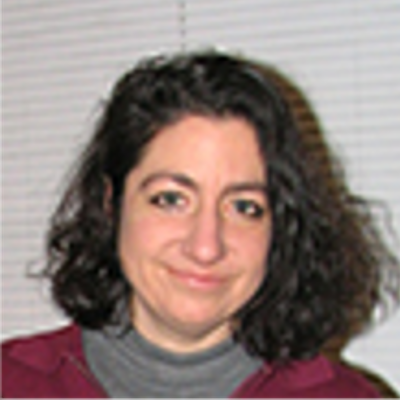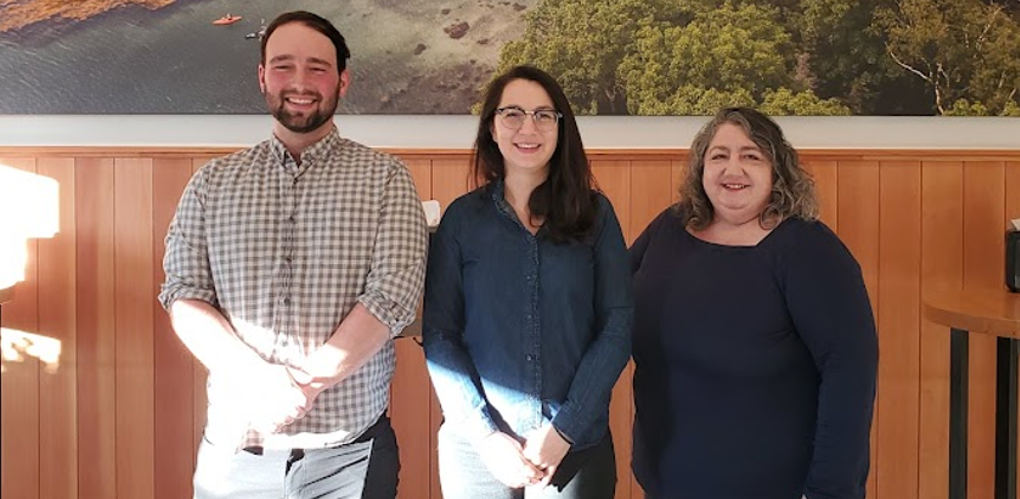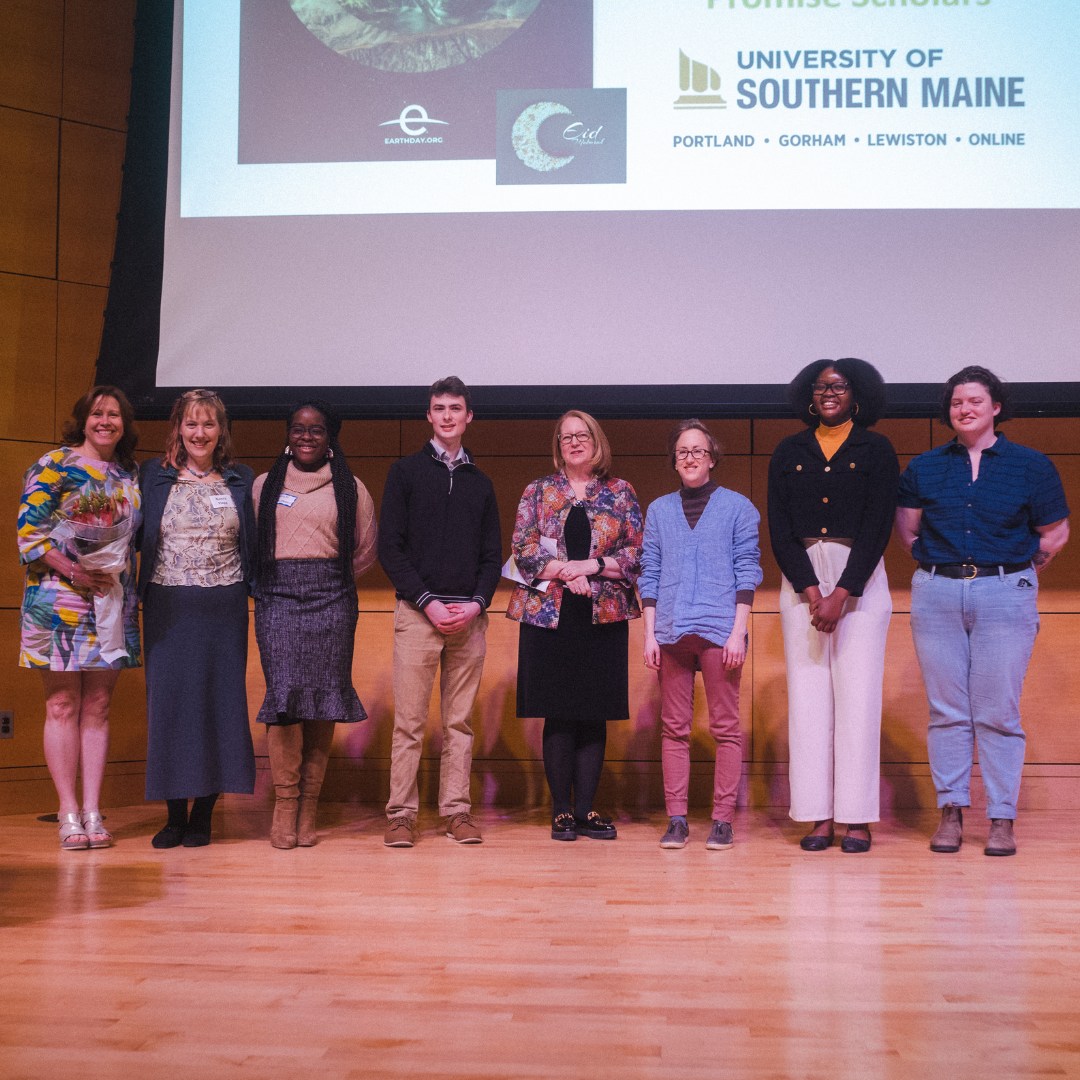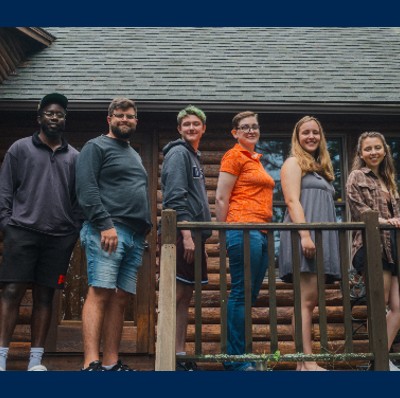This program is currently not adding new cohorts
Contact our Admissions team for help finding other program options.
Meet our inaugural cohort of
Shaw Innovation Fellows
Learn about the research conducted and projects created by the first cohort of Shaw Innovation Fellows: Joanna Benoit, Izaak Onos, and Caroline Patras.
Joanna Benoit, a Freeport resident, earned her Certificate of Graduate Study in Geographic Information Systems through the Muskie School of Public Service. Using community engagement, GIS, and other tools, she examined the long standing recreational use of private land and its economic impact. Joanna has years of experience working in food systems and environmental fields, and is Board of Directors Vice President for the Maine Farm and Sea Cooperative — so it’s no surprise that she loves cooking and the outdoors. Joanna holds a bachelor’s degree from UMass-Amherst in Food Systems and Policy, and a master’s degree in Policy Planning & Management from USM.
This project aims at capturing economic value for landowners and/or municipalities in natural resource rich but economically disadvantaged communities in rural Maine via innovative planning tools that engage the longstanding open land tradition (the norm of public access to privately owned land) in Maine. The most recent studies show that there has been, at least, a 24.5% increase in no trespassing or limited activity posting on privately owned land in Maine. (Acheson et al, 2009). Access to private land has been normalized over the years and many local economies have been reliant on recreational access to privately owned land. In 2019, outdoor recreation (direct recreation and support industries) accounted for 4.2% of Maine’s GDP (above national average), or $2.9 Billion (US Department of Commerce – Bureau of Economic Analysis, 2019). Slightly more than 90% of land in Maine is privately owned, meaning that a vast majority of outdoor recreation in Maine takes place on private land. Additionally, much land in Maine has shifted away from large, vertically integrated timber management companies to family/individual ownership creating a more fragmented and parcelized landscape. Understanding the increase in posting and shift in ownership trends in tandem with the economic impact of recreation in Maine begs the question: how can land owners collectively capture some of the economic benefits of keeping their land open and accessible?
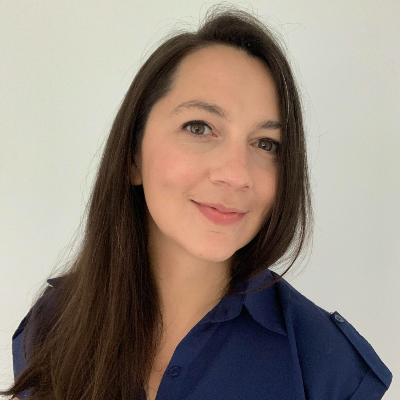
Izaak Onos, a South Portland resident in the Muskie School’s Policy, Planning, and Management graduate program, used GIS and Remote Sensing software to complete a 20-year vegetation analysis of the Kujaata region of Greenland to assess the impacts of its changing landscape. Izaak has experience as a graduate Research Assistant working with geo information systems and sustainability, and also uses his GPS skills as a Bicycle Tour Guide. He holds a bachelor’s degree in Geography & Anthropology from USM.
Kujataa is a dynamic region, poised to grow in the future. While the resiliency of the local people to the climate and region is well documented, little research has been done to monitor climate related landscape change itself. The Arctic region is warming at a faster rate than the rest of the world. Monitoring how enhanced warming has affected the tundra vegetation over the last twenty years will not only be the first study of this type in the Kujataa, but will be key information for local populations as they adapt to changing conditions around them and think strategically about their own futures.
In my project, I will engage in a twenty-year time-series vegetation analysis of the Kujataa region of southern Greenland. The project is heavily reliant on satellite data, Geographic Information Systems (GIS) and Remote Sensing software to synthesize the data, and statistical software for further quantitative analysis of vegetation change.
The monitored changes in the study can be invaluable for the local population of the region. The study can help with informed decisions around planning for the UNESCO Kujataa World Heritage site. The study will also provide baseline vegetation data that will be useful to guiding local farmers on how changing conditions may impact their farming practices. Such baseline data could also be important to assessing impacts from mining exploration and the tourism sector.
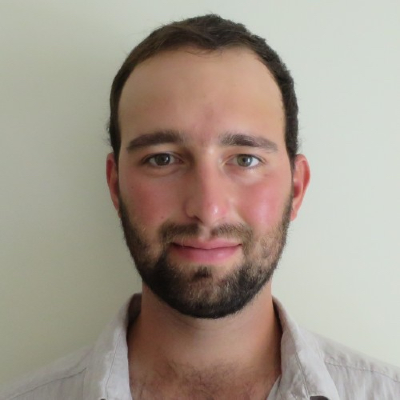
Caroline Paras, a Portland resident who studied Tourism and Hospitality in the College of Management and Human Service, worked to expand the “local” market for Maine food to New England and the Mid-Atlantic states, through the development of transformational agritourism and aquatourism experiences. Caroline has had a career in economic and community planning for local governments, and recently launched her own food company. She earned a bachelor’s degree in Political Science and Communication from UC-San Diego, and a master’s degree in American and New England Studies from USM.
Over the last decade, the market value from Maine farms and fisheries has declined by 13%. One bright spot, however, is agritourism, an experience offered to visitors on working farms that generates supplemental income, such as outdoor recreation, education, entertainment, lodging, and direct sales. From 2012 to 2017, direct sales on Maine farms increased 53%, and from other agritourism activities, 268% (USDA Census of Agriculture). Can these experiences serve as powerful forces to accelerate the process of consumer branding and loyalty? First coined in 1998, “Experience Economy” describes the movement of businesses beyond the mere sale of goods and services to the design of memorable experiences, with the memory itself becoming the product. The emotions generated by the event translate into behavioral intentions to purchase a product, both in real time and long after the event. This research project proposes to survey visitors participating in repeatable agritourism experiences on Maine oyster and wild blueberry farms. Supplemented by interviews, this dataset will be coded to discover the most powerful marketing themes – place, product, or industry – that resonate with consumers, particularly among out-of-state visitors in New England and the Mid-Atlantic who comprise Maine’s primary tourism markets.
